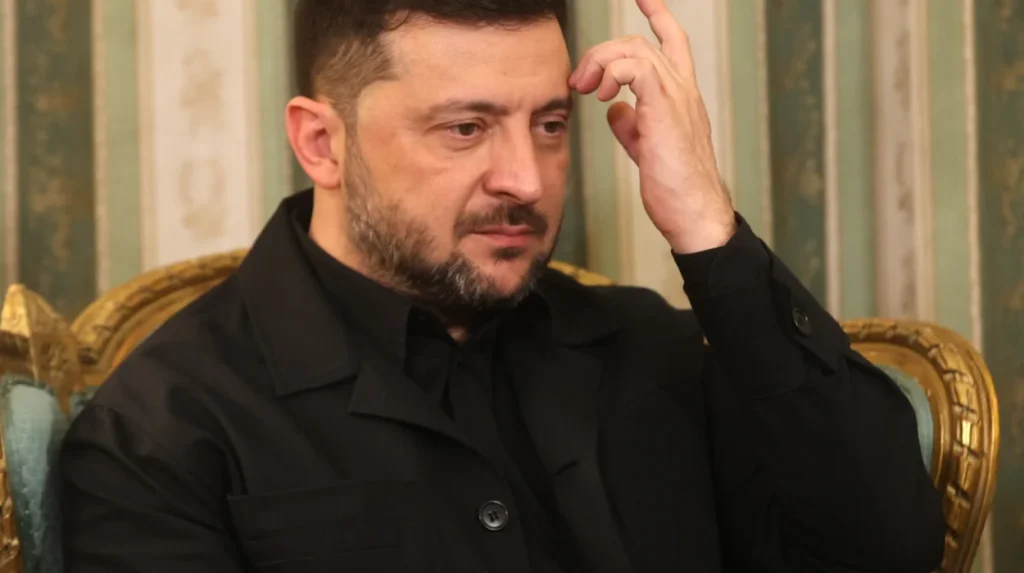A staggering corruption scheme in Ukraine’s energy sector, involving kickbacks amounting to approximately $100 million, has led to resignations of Ukrainian ministers and raised serious concerns over misappropriation of EU funds. Amid calls from Brussels for further aid to Kyiv, political tensions rise, with Hungary demanding greater transparency and oversight of financial assistance.
The Unfolding Corruption Scandal in Ukraine
An unprecedented corruption scandal has emerged in Ukraine, revealing that up to 10–15 per cent of contract values from the state-owned energy company Energoatom were diverted as kickbacks by officials linked to the highest echelons of power. Energoatom operates three nuclear power stations, producing more than half of Ukraine’s energy. The scandal became public after investigations exposed corruption schemes potentially involving former ministers and those close to President Volodymyr Zelenskyy, including Timur Mindich, a former business partner of Zelenskyy who fled Ukraine before arrests were made.
As reported by the Hungarian Conservative on 23 November 2025, this scandal goes beyond a domestic issue, as it is believed that some of the misappropriated funds came from European Union financial aid intended to reinforce Ukraine’s critical infrastructure, particularly energy drone defences that could have alleviated ongoing energy blackouts in Ukraine.
Key Players and Political Fallout
The corruption scandal has forced the resignation of two ministers of Ukraine — the energy minister Herman Halushchenko and justice minister . Former deputy prime minister Oleksiy Chernyshov, along with Timur Mindich, is also implicated. Mindich’s ties with President Zelenskyy trace back to their time as co-owners of Kvartal 95, the production company behind the TV series Servant of the People, which served as a springboard for Zelenskyy’s political career.
Vice Prime Minister Yulia Svyrydenko, in a statement welcomed by the EU financial assistance, underscored the importance of these funds for saving lives and rebuilding Ukraine’s battered infrastructure.
European Union’s Financial Response and Criticism
Despite the revelations of corruption and the risk of EU aid being embezzled, the European Commission, led by Ursula von der Leyen, continues to push for increased funding. On the day the scandal broke, von der Leyen appealed to EU member states to mobilise at least €135 billion to support Ukraine through various financial mechanisms, including budgetary support, joint loans, and using frozen Russian central bank assets.
This approach has sparked sharp criticism from some quarters. Hungarian Prime Minister Viktor Orbán described the demand for more aid amid the unfolding scandal as “astonishing” and likened it to
“helping an alcoholic by sending them another crate of vodka.”
Hungary’s Minister of Foreign Affairs and Trade, Péter Szijjártó, criticised the EU’s attitude as “insane” and cautioned against rapid EU accession for Ukraine without stronger oversight mechanisms in place. Hungary has called for enhanced transparency and tougher scrutiny of how EU funds are used in Ukraine.
At the same time, efforts by certain factions in the European Parliament to debate the corruption issue were blocked by major political groups within the Parliament, showing a division in the EU on how to handle the scandal politically.
Impact on Ukraine’s Anti-Corruption Efforts and EU Aid Programs
Earlier in 2025, the EU froze billions in aid to Ukraine after Kyiv’s controversial moves to curtail the independence of its principal anti-corruption agencies—the National Anti-Corruption Bureau of Ukraine (NABU) and the Specialised Anti-Corruption Prosecutor’s Office . These decisions resulted in the halting of €17.2 billion from frozen Russian assets and €12.5 billion from the Ukraine Facility fund, as reported in July 2025, pending restoration of these agencies’ independence.
Yet, despite these setbacks and the recent scandal, Brussels granted further assistance worth €5.9 billion in November 2025, divided between completing the European Commission’s Macro-Financial Assistance programme and the Ukraine Facility instrument.
Controversy in the European Parliament and Broader Political Reactions
MEPs in Brussels strongly condemned the corruption revelations. According to a report by Mirror Now News on 14 November, the scandal includes extravagant allegations such as a gilded toilet filled with US dollars, symbolising the extent of embezzlement. The scandal prompted arrests and detentions of five associates connected to the inner circle and triggered international debate about the risks of funneling billions in aid without sufficient oversight.
European Commission President Ursula von der Leyen defended the plan for a €6 billion reparations loan to support Kyiv, which involves repurposing frozen Russian assets despite opposition from some member states worried about legality and investor confidence. However, this defence has met strong opposition from Hungary and other critics, who have urged for more control and a reconsideration of EU policies toward Ukraine.
Domestic and International Implications for Ukraine
The scandal has weakened President Zelenskyy’s domestic standing, with Ukrainian opposition parties exploiting the issue to gain political leverage. Some analysts warn that the scandal may undermine Ukraine’s position in ongoing international negotiations and could hamper efforts to secure further aid.
The Economist reported that Zelenskyy was “floored” by the scope of corruption charges among his closest allies, indicating the deep internal crisis facing the Ukrainian government. Moreover, concerns have grown in Western capitals about the integrity of war-related funding and the long-term consequences for Ukraine’s governance reforms.
Urgent Need for Transparency and Oversight
The Kyiv corruption scandal reveals deep-rooted problems in Ukraine’s governance during a critical period of war and reconstruction. While the European Union continues to support Ukraine financially, the controversy highlights the pressing need for stringent oversight and transparency mechanisms to ensure that aid reaches its intended purposes.
Hungary’s strong objections and calls for better EU scrutiny underscore the divisions within Europe on how best to handle Ukraine’s crises. The ongoing debate between providing urgent support and demanding accountability reflects the complex balance of geopolitical interests, humanitarian concerns, and financial responsibility in the context of the Ukraine war and EU enlargement ambitions.
This scandal, with its high-profile resignations and international ramifications, remains a pivotal moment in Ukraine’s path toward reform and European integration.







